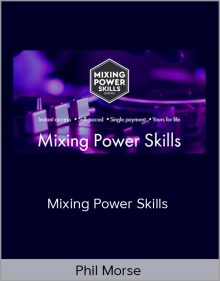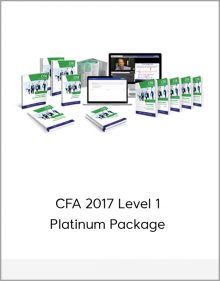Advanced Certificate Course Executive Functioning Skills for Children and Adolescents
Original price was: $249.00.$87.00Current price is: $87.00.
In this training, you will experience 50 developmentally progressive cognitive-exercises and coaching activities to enliven your classroom, office and clinic.
- Description
- Reviews (0)
- More Products
Description
Description
Advanced Certificate Course Executive Functioning Skills for Children and Adolescents
Sale Page: https://catalog.pesi.com/sales/rh_c_001418_advexecutivefunction_organic-154984
Make good choices. Study. Take turns. Start homework. Sit still. Focus. Finish homework. Turn in homework.
Executive function (EF) is at the core of everything kids and teens are asked to do each day at home and school. And yet when these expectations aren’t met, professionals often turn to consequences, discipline, and “tough love” to encourage change. And when that doesn’t work, the child is labeled as “lazy” or “unmotivated” rather than someone who lacks certain skills.
Join Lynne Kenney, Psy,D., pediatric psychologist, author and international educator, as she guides you through how you can integrate the newest research in neuroscience, kinesiology, and neurocognitive education for students to behave better and learn more efficiently.
In this training, you will experience 50 developmentally progressive cognitive-exercises and coaching activities to enliven your classroom, office and clinic.
Plus, learn how to improve cognition, enhance learning and empower children to be better thinkers with motor movement, sequencing, attending, self-regulation, and memory activities.
This training is a must-watch for any professional working with kids and adolescents!
Teaching Video Outline:
Priming the Brain for Learning
- Impact of brain stimulation, stress, ACE’s and trauma on learning
- Create low-stress-high-connection learning environments
- Biological precursors to learning
- New preliteracy
- Executive function precursors
- 5 early predictors of academic success
- Create a calm classroom culture with kindness, respect & trust
- Importance of collaboration, agency and creativity in learning and behavior
Foundational Motor Competencies that Proceed Learning
- Balance and weight shift
- Postural control for better learning
- Foundational movement patterns & sequences
- Types of patterns and elements
- How to build a movement sequence
- Activities
- Balance activity
- Teaching weight shift
- Head, shoulders, hips & knees
- Can everybody count
- Initial brain primer sequences for attention, memory and self-control
Musical Thinking
- We are musical
- Using The Love Notes Measures are magic!
- “We Move on the Beat in Time Together”
- Sequence is the secret
- Activities
- Musical thinking rhythm cards
- Communicating need sets musically
- Movin’ and Groovin’ movement mixes
- Creating your own standing patterns
Thinking Interventions for Better Learning and Behavior
- Executive functions CAN be learned
- Build core executive functions for achievement
- Cognitive skills building process
“I am the Best Coach for My Brain” – Lessons for Students
- Teach children about their brains
- Make executive functions transparent
- “Cognitive Conversation”
- Activities
- 8 brain lessons for students
- Cognitive conversation prompts
- The THINK Cards SAM Call and response cards
The “Cognitive Conversation” about Attention
- My Attention Engine
- Attention is more than one thing
- Attention cycle
- Types of attention
- Activities
- Prompts and questions
- Raise mindful awareness
- My Attention Engine
- Songs and chants
- Interactive conversational practice
Seated Work For Better Attention
- Alert Attention
- 1-5 minute desk percussion activities
- Stadium effect
- Compositions & orchestras
- Activities
- Table top tap
- Repeat the beat
- CogniTap
- Paradiddles
Cognitive Engagement – Music, Piano & Drumming
- Role of music in learning
- Build musical skills through auditory channels
- Imagination in spatial drumming
- Meludia Method
- Taiko
- Activities
- In Time (Advanced Brain Technologies) Solfege
Developing Your Own Patterns and Sequences
- Patterns
- Sequences
- Elements
- Sound and movement mixes
- Cueing
- Activities
- You’re a conductor
- We’re an orchestra
Language, Dyslexia, Reading and Learning
- What the research says about the precursors to reading
- Different types of dyslexia
- Role of speed of processing in reading
- Temporality, timing and prosody in reading
- Are rhymers really readers?
- Activities
- Narrative language in daily life
- Visual story-telling – sequencing and patterning in pictures
- Lullabies, folk songs and rhyming songs
- Circle pattern rhyming activities
Visual-Motor Language: Spotlight
- What is Spotlight and how was it developed?
- Collaboratively reading the visual-motor language
- Importance of cognitive cueing
- Use spotlight in various settings
- Activities
- Initial instructions to the student(s)
- Mirror and alternate
- Planer, lateral and contralateral movements for learning
- Create your own sequences
- The one spotlight movement circle
Brain Primers (Mike Kuczala)
- Developmentally progressive cognitive engagement
- Increase cognitive-motor demands
- Engage creativity and collaboration
- Engage the reluctant learner
- Advanced mix and match elements, patterns and sequences
- Activities
- Brain primers
The “Cognitive Conversation” about Memory
- Working, short-term, long-term, visual working, verbal (auditory) working memory
- Encode and retrieval
- Art, music and movement improve science
- Activities
- File cabinet visual prompt
- Retrieve math facts with Quick Rick
- Encoding spelling with Slow Mo
- Working memory enhancement strategies
- Visual memory enhancement techniques
Improving Behavior with Cognitive-Motor Movement
The “Cognitive Conversation” about Self-Control (Response Inhibition) + Impulsivity
- Achieve better classroom cohesion, socialization and behavior with responsive movement
- Difference between self-regulation and self-control
- Response inhibition and impulsivity
- Types of impulsivity (motor, verbal, cognitive)
- “Felt-Sense” of slowing down (self-control and self-regulation)
- 5 quick effective responses to dysregulated kids
- Between urge, action and behavior
- Trauma, cognition, and dysinhibition
- Block repetitive anxious thoughts
- Activities
- Think-Ups
- Mary and Her Me Me Me’s!
- Periwinkle and Pace
Self-Regulation: Heavy Work
- Push, pull and hold
- How does proprioceptive feedback calm the brain and body?
- What does the counting or cueing sound like?
- Activities
- Successful transitions
- Stationary holds with the Musical Thinking Rhythm cards
- Large-motor heavy play
- Hand play
Self-Regulation: Achieving an Alert State of Calm
- Self-regulation: emotional, cognitive, sensory/motor
- Self-regulation as energy management
- Use entrainment to reciprocally regulate 3,5,7,9 for calming in time
- Activities
- Co-regulation
- Retro Walking Dressage Patterns
- Yoga patterns
- Tai Chi patterns
- Mirror writing
- Self-monitoring worksheet
Attention, Memory and Inhibition
- How bean bags engage visual tracking
- How bean bags engage attention and memory
- Hand-eye patterns & sequences
- Activities
- One and two person bean bag activities
Rhythm Ball for Calming
- One and two person ball activities
- Change cueing & counts for alerting and calming
- Activities
- Co-regulating with one person
- Back-to-back listening activity
- Use music and metronomes
Meet Your Course Expert:
Lynne Kenney, Psy.D., is the nation’s leading pediatric psychologist in the development of classroom cognitive-physical activity programs for students grades K-6. Dr. Kenney develops curriculum, programming, and activities to improve children’s cognition through coordinative cognitive-motor movement, executive function skill-building strategies, and social-emotional learning.
Dr. Kenney has advanced fellowship training in forensic psychology and developmental pediatric psychology from Massachusetts General Hospital/Harvard Medical School and Harbor-UCLA/UCLA Medical School. She holds a Master’s Degree in Physical Education from the University of Southern California and a Doctorate in Psychology from Pepperdine.
Reviews (0)
Be the first to review “Advanced Certificate Course Executive Functioning Skills for Children and Adolescents”
You must be logged in to post a review.
More Products
-
Linda Backman – Soul Evolution Mastery
Original price was: $297.00.$89.00Current price is: $89.00. Buy now -
-
John Overdurf – 2014 12 Daze Bundle
Original price was: $421.00.$77.00Current price is: $77.00. Buy now -
Dick Sterry – Summer Release 2017
Original price was: $10,000.00.$497.00Current price is: $497.00. Buy now





















Reviews
There are no reviews yet.